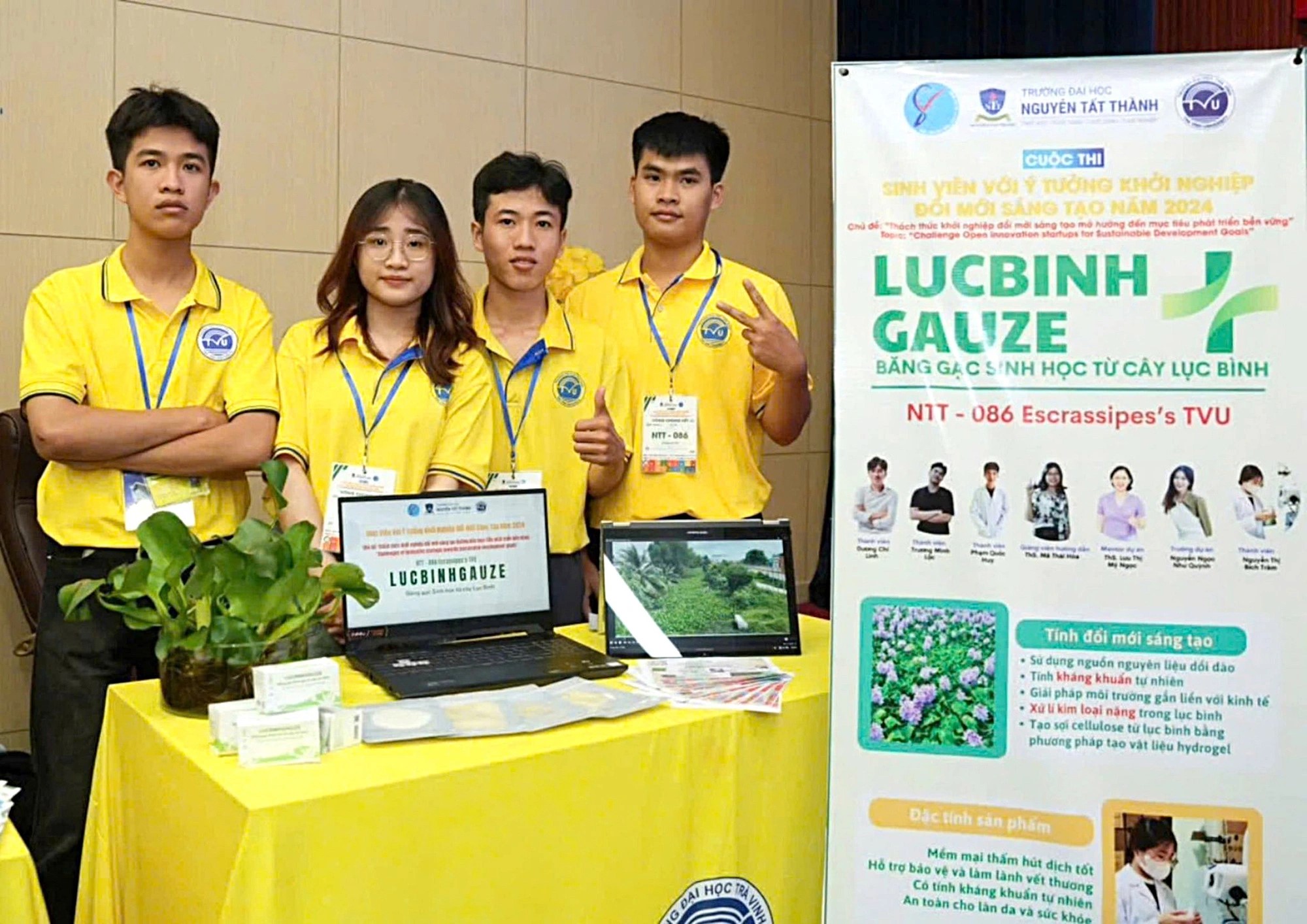A group of students from a university in Vietnam has developed a new type of medical gauze made from the abundant water hyacinth plant.
The project highlights the students' focus on both environmental sustainability and advancing healthcare.
The team consists of five students from Tra Vinh University in the namesake province in southern Vietnam.
They are Nguyen Ngoc Nhu Quynh, Truong Minh Loc, and Duong Chi Linh from the e-commerce department; Nguyen Thi Bich Tram from biotechnology; and Pham Quoc Huy from medicinal chemistry.
After three months of research, the students successfully created a biological gauze, which they named LUCBINHGAUZE.
Addressing environmental concerns
Water hyacinth is known for its rapid growth in the rivers of Vietnam's Mekong Delta, often creating dense mats that obstruct boat and ship movement.
This invasive species is regarded as a threat to the aquatic ecosystem.
“With the goal of minimizing the harmful impact of water hyacinth, we decided to develop medical gauze from the plant,” said Quynh.
“Our project not only converts water hyacinth into an essential healthcare product but also promotes environmental protection and generates job opportunities for rural communities.”
Huy explained that producing high-quality gauze involves several steps: cutting and preprocessing the water hyacinth, drying it, extracting cellulose, and finally forming it into medical gauze.
The extraction process is particularly challenging, requiring precision during mixing and decolorization.
“We draw on knowledge from various fields such as organic chemistry, analytical chemistry, molecular biology, and e-commerce marketing to refine our production process,” Huy elaborated.
Expert endorsement
Ma Thai Hoa, a lecturer at the applied chemistry department at Tra Vinh University, praised the project for its potential commercial viability.
“The team has effectively utilized natural resources to create a valuable product," Hoa said.
"This environmentally friendly bio-product is antibacterial and highly biodegradable.
"It will not only generate job opportunities for local farmers but also promote regional products in international markets."
She advised the students to manage input material sources and treat wastewater from production while suggesting that they invest in specialized equipment to lower the cost.
Tram stated that many bandages on the market are made out of cotton fiber and lack waterproofing.
The team addressed this by combining raw powdered chitosan with cellulose from water hyacinth to create gauze pads that retain moisture and remain water-resistant.
The natural extracts from water hyacinth enhance antibacterial properties, making them ideal for sensitive skin.
“Our gauze pads are biodegradable and leave no harmful residues after use,” Tram said.
Quynh added that despite facing challenges, such as limited funding and equipment, the team persevered through self-directed learning in theory building and project management.
Their products have undergone hygiene and safety testing, with plans to develop 100-percent cellulose cotton bandages and explore gel dressings in the future.
High absorbency features
Luu Thi My Ngoc, deputy head of clinical pharmacy at Nguyen Tat Thanh University in Ho Chi Minh City, lauded the product’s absorbency.
“The bandage effectively absorbs fluids while maintaining breathability, thanks to the porous structure of water hyacinth fibers," Ngoc explained.
"This makes it a hydrogel material with high absorbency, naturally derived from water hyacinth.”
She added that the team has implemented processes to remove heavy metals from the product.
The team earned second place in the Nguyen Tat Thanh University Competition for Students with Innovative Startup Ideas 2024 for their medical gauze.
They have now advanced to the semifinals of the Green Startups 2024 Competition, with plans to compete in the finals in November.
Like us on Facebook or follow us on X to get the latest news about Vietnam!


















































